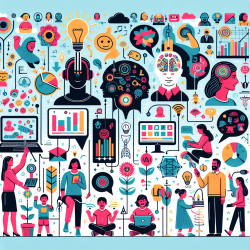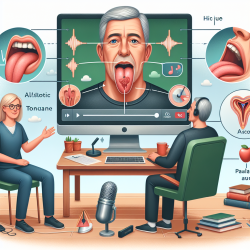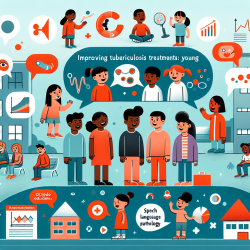Introduction
In the realm of speech-language pathology, understanding and addressing developmental language disorders (DLD) is crucial for fostering positive outcomes in children. Recent interdisciplinary research across German-speaking countries has provided valuable insights into the definition and terminology of these disorders. This blog aims to guide practitioners in enhancing their skills by implementing research findings or encouraging further exploration.
Understanding Developmental Language Disorders
The study titled "Definition and terminology of developmental language disorders—Interdisciplinary consensus across German-speaking countries" presents a consensus on essential definition criteria and terminology for language disorders in childhood. The research involved over 400 experts and resulted in 23 statements that provide a uniform approach to understanding these disorders.
One key finding is the endorsement of the term ‘Sprachentwicklungsstörung’ to describe significant deviations from typical language development. Such deviations negatively impact social interactions, educational progress, and social participation. Importantly, these disorders are identified when a child's scores in standardized tests are at least 1.5 standard deviations below the mean for their age group.
Implementing Research Outcomes
Practitioners can enhance their skills by integrating these findings into their practice:
- Standardized Testing: Utilize standardized tests to identify significant deviations in language development. This data-driven approach ensures accurate diagnosis and tailored interventions.
- Multilingual Considerations: Recognize that multilingual children should not be classified as having a DLD if they demonstrate age-appropriate abilities in any of their spoken languages. This understanding helps prevent misdiagnosis and ensures appropriate support.
- Holistic Assessment: Consider cognitive, sensory-motor, and behavioral domains in the assessment process. The presence of co-occurring conditions does not preclude a DLD diagnosis but requires a comprehensive evaluation.
Encouraging Further Research
While the study provides a robust framework, it also highlights areas needing further exploration:
- Cognitive Abilities: The role of nonverbal cognitive abilities in DLD classification remains debated. Further research could clarify how cognitive impairments intersect with language disorders.
- Multilingual Contexts: More studies are needed to develop diagnostic procedures tailored for multilingual children, ensuring accurate identification and intervention.
Conclusion
By embracing these research insights, practitioners can make informed, data-driven decisions that improve outcomes for children with developmental language disorders. The study's findings not only standardize terminology but also pave the way for more effective interventions.
To read the original research paper, please follow this link: Definition and terminology of developmental language disorders—Interdisciplinary consensus across German-speaking countries.










